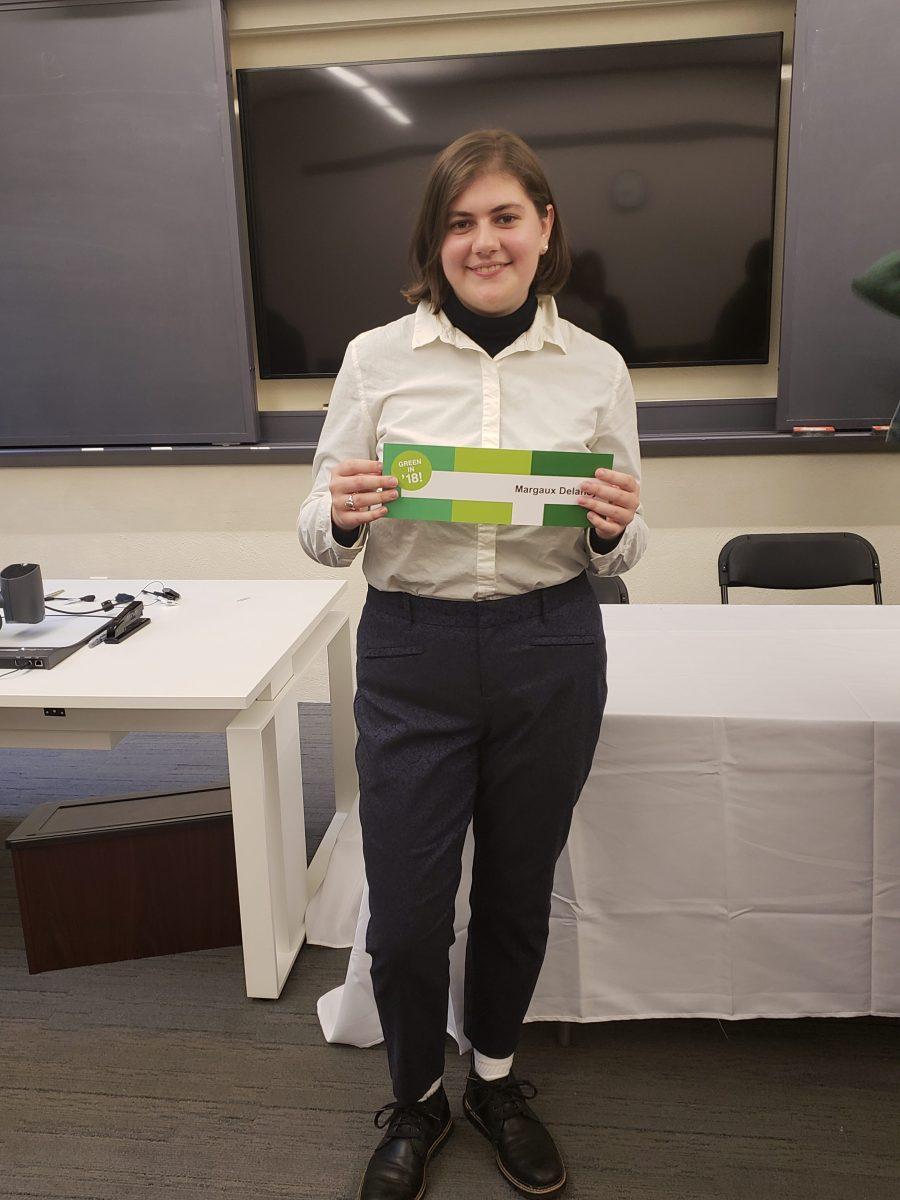Margaux Delaney ’20 spent the summer as an intern at the American Shakespeare Center (ASC), a Shakespeare theater in southern Virginia, and gave a Tanner presentation on her work on Oct. 23. As an English and medieval studies double major, the experience of being in a working theater rather than engaging with her field in an academic context was new to Delaney.
“I don’t study theater, and that was one difference between me and the rest of the interns; they were all theater students, and I was the only one who wasn’t,” she said. “So I was coming with a bit of a different background in med-ren as opposed to theater, which [had] strengths and weaknesses for sure. It was different.”
However, Delaney embraced that difference, feeling that it contextualized the work she was doing within her field, and provided a possible path for her future.
“Part of it is thinking about the applications of an academic career, and what I can do outside of the academy,” she explained. “I don’t necessarily know if I want to go in that direction, but it just sort of expanded possibilities. I wouldn’t have to stop doing the things that I want to do by pursuing a professional career rather than academic.”
The ASC presents itself as “the world’s only re-creation of Shakespeare’s indoor theatre” due to its unusual staging and teaching practices. Aside from the theater using costumes from a wide variety of time periods including contemporary costumes, and mixed-gender casting rather than all-male casting, the theater tries to keep each production as close as possible to what an audience in the seventeenth century would have been able to see, using original staging conditions.
“The most important piece is what is called universal lighting,” Delaney said. “The lights don’t turn off. Universal lighting changes how you can stage a play; for example, think about the mechanics of having an onstage death when there isn’t a blackout or a curtain. Other actors are going to have to physically bear a body off stage and get it out of the way that way.”
Another practice the ASC takes from Shakespeare’s time is the use of cue scripts during rehearsals.
“In a cue script, an actor would have seen only his own lines and the single word that cues him,” explained Delaney. “This was partly a practical timesaving device; since a scribe would have to copy out each individual actor’s part by hand, it made sense to keep the writing down to a minimum.”
Delaney demonstrated the effects of using a cue script by having two other panelists attempt to practice a scene from “The Merchant of Venice” by reading from one, and the result led to a lot of interruptions. For example, the cue word for one panelist was “bond,” but in the scene they were practicing, the word “bond” occurs very frequently, so she attempted to say her lines several different times before her real cue.
“As you can see,the interruptions are real. The feeling of being interrupted is real, and that really transforms what we see here,” said Delaney. “This is the interaction that Shakespeare deliberately programmed into the text, and that he used cue scripts in order to achieve.”
The ASC’s use of seventeenth-century staging conventions like cue scripts and universal lighting was one of the things that drew Delaney to work there in the first place.
“This idea of original staging conditions is really integral to their work, and that’s why I was interested in working there in the first place as a Medieval and Renaissance Studies major,” she said. “Although I like Shakespeare and other early modern playwrights, I had never actually done any related work personally … Through the performance-based workshops that I was helping out with, I learned so much about how to take scholarship and research about the conditions of early modern performance and make it meaningful on the modern stage.”






